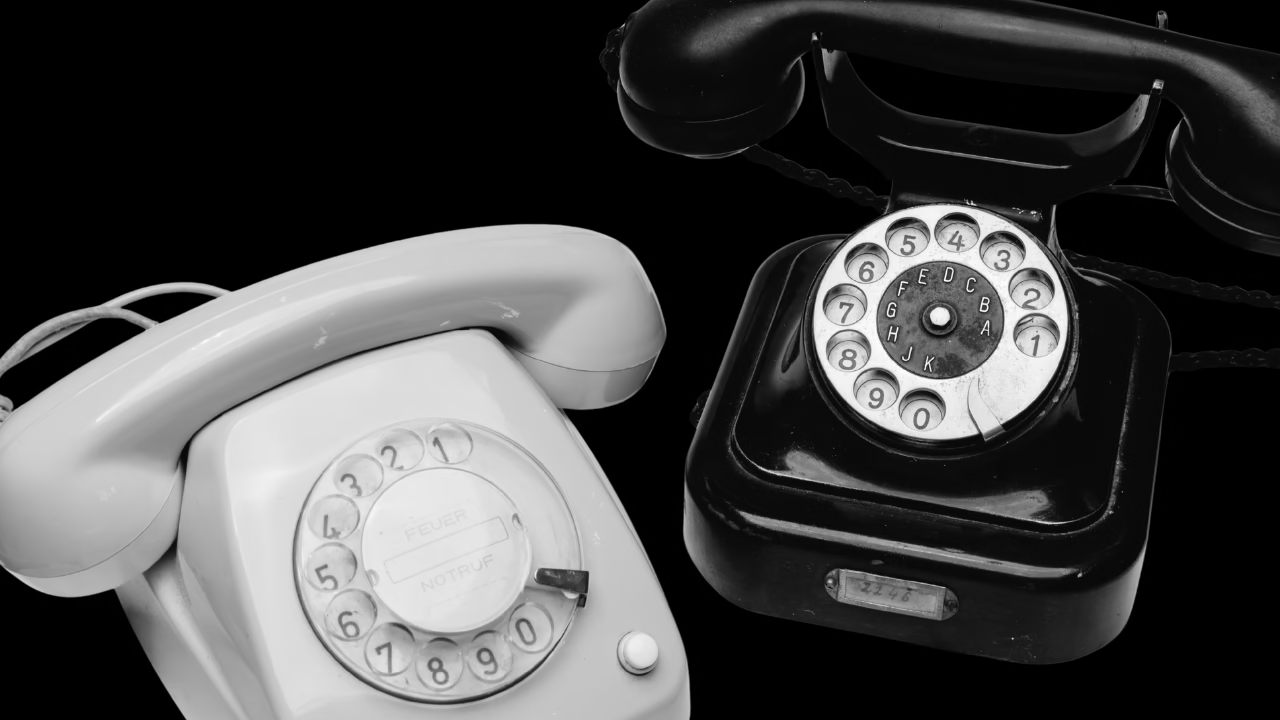Why the Telephone Is Real Estate’s Secret Weapon.
In the fast-paced, tech-saturated world of 2025, it’s easy to assume that texting, social media, AI chatbots, and email campaigns dominate the real estate communication game. And while those tools are undeniably powerful, there’s a quiet hero that continues to outperform when it comes to building real relationships and closing deals: the telephone.
Yes, the good old-fashioned phone call is having a comeback. In fact, for real estate professionals who want to stand out in a crowded marketplace, the telephone is not just relevant, it’s a secret weapon.
Human Connection in a Digital World
The real estate industry is fundamentally about trust and relationships. Buyers and sellers are making massive financial and emotional decisions. While automation and online listings help with efficiency, they don’t replace the warmth of a human voice.
In 2025, people are hungrier than ever for authentic human connection. After years of increasing digital noise and AI-driven conversations, a real phone call can cut through the clutter. Hearing someone’s tone, inflection, and genuine interest establishes rapport in a way that no emoji ever could.
This is especially true in Canadian markets where community, trust, and reputation carry a lot of weight. Whether you’re in Toronto, Calgary, Vancouver, or a smaller town in the Maritimes, clients still value personal interaction, and a phone call feels like a gesture of real effort and care.
Speed and Clarity
In the modern real estate environment, speed matters. A call can clear up confusion, answer multiple questions, and move a deal forward in minutes, something that could take days over email or text.
Let’s say your buyer sees a new listing pop up. You could spend hours going back and forth by text, or you could call them, discuss their thoughts in real-time, and immediately schedule a showing. For sellers, calling after a showing provides immediate feedback and maintains momentum.
In a time-sensitive market like 2025, where listings move fast and competition is high, the phone becomes a vital tool for staying ahead.
Cutting Through the Noise
People are bombarded with notifications every day. Emails go unopened. Texts get lost in group chats. Social media algorithms bury posts.
But a ringing phone? That still gets attention.
And it’s not just about getting noticed, it’s about being remembered. A sincere follow-up call after an open house, a check-in on how someone’s feeling about their sale, or a quick update about market conditions sticks with people. It signals professionalism, dedication, and a human-first approach.
In a sea of automation, the personal touch of a phone call is a standout move.
Better for Difficult Conversations
Let’s be honest: not every conversation in real estate is easy. Whether it’s a lowball offer, a financing hiccup, or a tough negotiation, delivering bad news by text can come off as cold or impersonal.
The phone allows you to be empathetic and solution-focused in real time. You can hear your client’s concerns, respond with compassion, and guide them through stress or disappointment. That builds long-term loyalty, not just for this transaction, but for future referrals and repeat business.
More Efficient Prospecting
In 2025, social media marketing, lead generation software, and CRMs are more sophisticated than ever. But turning those digital leads into actual appointments? That’s where the phone shines.
Real estate agents who commit to consistent prospecting calls, whether it’s expired listings, FSBOs, or following up on online leads might see a higher conversion rate than those who rely solely on emails or messages. A phone call allows you to qualify a lead, ask nuanced questions, and establish yourself as a helpful resource, all in a few minutes.
Especially in Canadian markets where real estate can be hyper-local, that voice-to-voice contact helps you build credibility fast.
It’s Not Either/Or, It’s Both
None of this is to say that texting, DMs, or video content don’t matter, they absolutely do. In fact, the best agents in 2025 are combining digital touchpoints with old-school tactics like the telephone.
Here’s an example workflow:
- DM a lead on Instagram ➜ Follow up with a phone call the next day.
- Email a buyer a market update ➜ Call them to discuss strategy.
- Text a seller to confirm a showing ➜ Call after the showing to share feedback.
It’s this integration of tech + voice that creates the perfect balance. Clients feel supported, heard, and cared for.
The Bottom Line
Real estate in 2025 is more competitive, fast-paced, and digitally advanced than ever. But at its core, success still hinges on human relationships.
The telephone remains one of the most powerful tools for creating trust, handling objections, deepening client loyalty, and converting leads into sales. It’s immediate, personal, and, in a world where everyone’s trying to automate everything, refreshingly human.
So the next time you’re tempted to send another email or schedule a drip campaign, consider picking up the phone. You might just find that the best “new” strategy is one of the oldest in the book.
BUZZ











